 Phenomenological explorations for existential seekers. Ten live dialogues between Prof Ernesto Spinelli and International Existential Therapists which clearly illustrate their own personal journey intertwined with the method of the investigation. We are looking to highlight the role of the researcher as an existential seeker.
Phenomenological explorations for existential seekers. Ten live dialogues between Prof Ernesto Spinelli and International Existential Therapists which clearly illustrate their own personal journey intertwined with the method of the investigation. We are looking to highlight the role of the researcher as an existential seeker.
Workshop – Reflections on Existence through a Phenomenological Method.
Two-hour practical module where participants, inspired by the previous presentation and dialogue, explore and elaborate on their own practice and research with the guest teacher and Bárbara Godoy. This process ends with the opportunity to experience oneself in a clearing. Here we can reflect on how our research is affecting, disturbing and inspiring our own relationship with Being.
TIMES AND DATES:
Ten Saturdays 2 pm to 5 pm (UK time)
27 Jan. “Placebo” with Prof E. Spinelli
24 Feb. “Reflexivity” with Prof Carla Willig
23 March “Homecoming” with Prof R. Romanyshyn
27 April “Ungraspable” with Dr Todd DuBose
18 May “Homelessness” with Dr Greg Madison
22 Jun. “Psychedelics” with Dr Yaqui Martinez
20 Jul. “Anxiety” with Prof Kirk Schneider
26 Oct. “Intentionality” with Dr Betty Cannon
23 Nov. “Vulnerability” with Prof Simon du Plock
14 Dec. “Enacting” with Bárbara Godoy
Full course (including dialogues):
£600 (2 pm to 5 pm – UK Time)
Only Dialogues:
£300 (2 pm to 3 pm – UK Time)
Venue: Online Zoom
Programme
List of speakers and their research by date.
PLACEBO
between Prof. Ernesto Spinelli
and Bárbara Godoy (Spinelli’s research)
27 January 2024
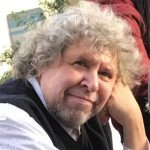 “Magic Feathers: Therapy as Placebo. My research on the various ways to consider placebo effects has highlighted the importance of the role of belief, meaning and context as key variables in successful placebo effects. I’m interested in exploring what these findings may clarify, and challenge, regarding the critical variables necessary for beneficial therapeutic outcomes. In particular, I’m interested in what beliefs and assumptions – “magic feathers” – therapists believe they need in order to maintain their belief that “now I am being a therapist and now therapy is possible”. Linked to this is my proposal of the co-creation of a “therapy world” – as opposed to establishing a therapeutic relationship of some kind – as a pivotal “common factor” in determining the effectiveness of psychotherapeutic interventions.” Prof. Ernesto Spinelli.
“Magic Feathers: Therapy as Placebo. My research on the various ways to consider placebo effects has highlighted the importance of the role of belief, meaning and context as key variables in successful placebo effects. I’m interested in exploring what these findings may clarify, and challenge, regarding the critical variables necessary for beneficial therapeutic outcomes. In particular, I’m interested in what beliefs and assumptions – “magic feathers” – therapists believe they need in order to maintain their belief that “now I am being a therapist and now therapy is possible”. Linked to this is my proposal of the co-creation of a “therapy world” – as opposed to establishing a therapeutic relationship of some kind – as a pivotal “common factor” in determining the effectiveness of psychotherapeutic interventions.” Prof. Ernesto Spinelli.
Prof. Ernesto Spinelli was Chair of the Society for Existential Analysis between 1993 and 1999 and is a Life Member of the Society. His writings, lectures and seminars focus on the application of existential phenomenology to the arenas of therapy, supervision, psychology, and executive coaching. He is a Fellow of the British Psychological Society (BPS) as well as an APECS accredited executive coach and coaching supervisor. In 2000, he was the Recipient of BPS Division of Counselling Psychology Award for Outstanding Contribution to the Profession. And in 2019, Ernesto received the BPS Award for Distinguished Contribution to Practice. His most recent book, Practising Existential Therapy: The Relational World 2nd edition (Sage, 2015) has been widely praised as a major contribution to the advancement of existential theory and practice. Living up to the existential dictum that life is absurd, Ernesto is also the author of an on-going series of Private Eye novels.
Recommended readings for “Placebo”:
Evans, D. (2003). Placebo: mind over matter in modern medicine. London: Harper Collins.
Miller, F. G. & Kaptchuk, T. J. (2008). The power of context: reconceptualizing the placebo effect.
Journal of the Royal Society of Medicine, 101 no 5, 222-225.
Moerman, D. E. & Jonas, W. B. (2002). Deconstructing the placebo effect and finding the
meaning response. Annals of Internal Medicine, 136, no.6, 471-476.
REFLEXIVITY
between Prof. Carla Willig
and Prof. Ernesto Spinelli
24 February 2024
 “I will be reflecting on the evolution of a programme of research into the experience of cancer-related distress which began with my own experience of being diagnosed with cancer in 2007. The struggle for meaning that I found myself engaged in following my diagnosis was intense as well as exhausting. To help me make sense of my experience, I kept a journal and in 2009 I published an autoethnographic account of my struggle for meaning. Writing about my experience and making sense of it through the lens of existential philosophy helped me to construct a serviceable narrative- a way of making sense of my experience that I could live with. It also set me on a path of further exploration of the phenomenon of cancer-related distress and I realised that my way of finding meaning in a cancer diagnosis involved turning the experience into an object of research. In the years that followed I conducted a series of studies looking at the phenomenon from different angles including discourse analysis, hermeneutic phenomenology and qualitative meta-synthesis.” Prof. Carla Willig.
“I will be reflecting on the evolution of a programme of research into the experience of cancer-related distress which began with my own experience of being diagnosed with cancer in 2007. The struggle for meaning that I found myself engaged in following my diagnosis was intense as well as exhausting. To help me make sense of my experience, I kept a journal and in 2009 I published an autoethnographic account of my struggle for meaning. Writing about my experience and making sense of it through the lens of existential philosophy helped me to construct a serviceable narrative- a way of making sense of my experience that I could live with. It also set me on a path of further exploration of the phenomenon of cancer-related distress and I realised that my way of finding meaning in a cancer diagnosis involved turning the experience into an object of research. In the years that followed I conducted a series of studies looking at the phenomenon from different angles including discourse analysis, hermeneutic phenomenology and qualitative meta-synthesis.” Prof. Carla Willig.
Carla Willig is Professor of Psychology at City, University of London, and a Counselling Psychologist in private practice. She has a long-standing interest in qualitative research methods and has published widely on the subject. She was awarded the British Psychological Society’s (BPS) Qualitative Methods in Psychology (QMiP) Section’s ‘Lifetime Achievement and Contribution to Qualitative Methods’ researcher prize in 2019. Carla is the author of ‘Introducing Qualitative Research in Psychology’ published by OUP/McGraw Hill (currently in its 4th edition, 2021) and of Qualitative Interpretation and Analysis in Psychology (McGraw Hill, 2012). She is co-editor (with Wendy Stainton Rogers) of ‘The SAGE Handbook of Qualitative Research in Psychology’ (2nd edition, 2017), and more recently co-edited a book on Qualitative Research Methods in Mental Health: Innovative and Collaborative Approaches (with Maria Borcsa, published by Springer Nature).
Recommended readings for “Reflexivity”:
Frank, A. W. (1995) The Wounded Storyteller. Chicago, Il: University of Chicago Press.
Willig, C. (2009) “Unlike a Rock, a Tree, a Horse or an Angel…”: Reflections on the Struggle for Meaning Through Writing During the Process of Cancer Diagnosis, Journal of Health Psychology, 14(2):181-189.
Willig, C. (2021) Using Researcher Reflexivity and Multiple Methods to Study the Experience of Living with Cancer, In: M. Borcsa and C. Willig (eds) Qualitative Research Methods in Mental Health: Innovative and Collaborative Approaches. Cham: Switzerland: Springer Nature
HOMECOMING
between Prof. Robert Romanyshyn
and Prof. Ernesto Spinelli
23 March 2024
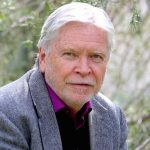 “The primal truth about all of us is we are a part of the natural world and not apart from it, as if, like some disembodied mind, we fall into being a spectator at a distance taking its measure. Imprisoned in our unexamined belief systems, we find ourselves at odds with Nature shackled to an ideology that seems to be leading us to possible oblivion. But the beating heart of this primal truth, every rhythmic pulsation of the blood that flows in our veins, echoes the rhythmic vibrations of the natural world. Its sensuous displays impregnate the sensual flesh of the embodied mind revealing an intimate, erotic coupling. Searching for home, we come home to ourselves by coming back to the natural world, attesting to the healing power of the wilderness within and in the world. Attuned to the love affair between the skin of nature and the skin of embodied mind a therapeutic transformation of consciousness arises as one wanders as a witness in wonder at the epiphanies of the miracles in the mundane, the extraordinary in the ordinary, the strange in the familiar and the unexpected in the daily round of being, And, perhaps on occasion, even the invisible holy, sacred seed of the living sprit of Nature might blossom as a flower from the visible. ” Prof. Robert Romanyshyn.
“The primal truth about all of us is we are a part of the natural world and not apart from it, as if, like some disembodied mind, we fall into being a spectator at a distance taking its measure. Imprisoned in our unexamined belief systems, we find ourselves at odds with Nature shackled to an ideology that seems to be leading us to possible oblivion. But the beating heart of this primal truth, every rhythmic pulsation of the blood that flows in our veins, echoes the rhythmic vibrations of the natural world. Its sensuous displays impregnate the sensual flesh of the embodied mind revealing an intimate, erotic coupling. Searching for home, we come home to ourselves by coming back to the natural world, attesting to the healing power of the wilderness within and in the world. Attuned to the love affair between the skin of nature and the skin of embodied mind a therapeutic transformation of consciousness arises as one wanders as a witness in wonder at the epiphanies of the miracles in the mundane, the extraordinary in the ordinary, the strange in the familiar and the unexpected in the daily round of being, And, perhaps on occasion, even the invisible holy, sacred seed of the living sprit of Nature might blossom as a flower from the visible. ” Prof. Robert Romanyshyn.
Robert D. Romanyshyn, an Affiliate Member of The Inter-Regional Society of Jungian Analysts, a Fellow of the Dallas Institute of Humanities and Culture, and a Professor Emeritus of Clinical Psychology at Pacifica Graduate Institute, was recently awarded the Distinguished Lifetime Contributions to Humanistic Psychology Award from the Society for Humanistic Psychology APA Division 32.
He has published eight books and numerous articles in psychology, philosophy, education, and literary journals. He is also a published poet and has written a one-act play about Frankenstein. In 2009 he created a multi-media DVD entitled Antarctica: Inner journeys in the Outer World, which offers a psychological reflection on the melting polar ice. In addition to online seminars and interviews, he has given lectures and workshops at universities and professional societies in the U.S., Europe, Australia, South Africa, Canada, and New Zealand.
Recommended readings for “Homecoming”:
Shehadeh R. (2008). Palestinian Walks. Profile Book.
Craven M. (1980). I Heard The Owl Call My Name. Picador
Romanyshyn R. (in progress), Introduction and one vignette from ‘In Search of Home: Presence to Wonder in Our Time of Need’. Read >
UNGRASPABLE
between Dr. Todd DuBose
and Prof. Ernesto Spinelli
27 April 2024

This dialogue will explore how we can research experiences that resist or exceed our typical frames by which we know, name, understand, see, and grasp events, including in both natural and human science ways. We will lean on Heidegger’s later thought on the phenomenology of the inapparent and its relationship to the thought of various French phenomenologists in what is known as the “new phenomenology”, a movement that invited both proponents and opponents of what has come to be known as the “theological turn” in phenomenology. Researchers and practitioners of care have traditionally made it their prerogative to translate the unknown to the known, privileging the latter over the temporary inconvenience of the former, and defining competence as the one who knows, concludes, utilizes, conceptualizes, operationalizes, engineers, and commodifies. I propose, though, that lived meaning, although ubiquitous and what is of most concern to us in each and every moment of our lives, nonetheless conceals as much as it reveals, as in icons and traces, such that its showing also reveals what does not (and perhaps cannot) show itself, particularly in typical ways we demand how something appears. Where does that leave us, though, as researchers and therapoets when, to put it in Michel Henry’s language, “Life” is experienced but not “seen” (objectified, grasped) and cannot be studied by science (natural or human)? Nevertheless, the therapoet’s task is to be the clearing-as-“letting” so that what is, can be, even, if not especially, ungraspable and inapparent!” Dr. Todd DuBose.
Dr. Todd DuBose is a world-renowned, Distinguished Full Professor at The Chicago School’s College of Professional Psychology. He teaches philosophical foundations of practices of care, ethics, loss and mourning, psychology and spirituality, psychopathology, among other courses, all from a human science perspective, and with a particular focus on therapoetic care. He is a licensed psychologist, supervisor, consultant, and former chaplain, with over thirty-five years of experience. He holds degrees in continental and comparative philosophy of religion and existential-hermeneutical-phenomenological human science clinical psychology and integrates these approaches as a way of caring for such experiences as the impossible (no way out, boundary or limited situations), extreme experiences (such as psychosis, nihilism, suicidal and homicidal ideation), and the taboo (the places no one wants to go: the unwanted and unacceptable, unsayable, unforgiveable, forbidden, and irreverent). He regularly presents workshops in several international venues such as the Circulo de Estudios en Psicoterapia Existential, in Mexico City, Mexico, the Zhi Mian International Institute of Existential-Humanistic Psychology in Dali, China, and the Centre for Existential Practice in Melbourne, Australia. He is widely published and has written on caring for others in very difficult situations including traumatic loss, surviving the COVID-19 pandemic, and meaninglessness. He has also written a short dialogue with Miles Groth, edited by Loray Daws, called, Dialogues on The Soul of Existential Therapy, published by The Society for Existential Analysis. Most of all, he considers himself simply a fellow human being.
Recommended readings for “Ungraspable”:
Alvis, J. (2018). Making sense of Heidegger’s ‘phenomenology of the inconspicuous’ or inapparent (Phänomenologie des Unscheinbaren). First Published online: 22 June 2017. Cont Philos Rev (2018) 51:211–238 https://doi.org/10.1007/s11007-017-9422-8.
Janicaud, D., et. al. (2000). Phenomenology and the “Theological Turn”: The French debate. Fordham University Press.
McNeill, W. (2020). The fate of phenomenology: Heidegger’s legacy. Rowman & Littlefield.
Simmons, J. and Benson, B. (2013). The new phenomenology: A philosophical introduction. Bloomsbury.
HOMELESSNESS
between Dr. Greg Madison
and Prof. Ernesto Spinelli
18 May 2024
 “There is something deeply human about the issue of home. Why is it possible for a human being to feel at-home at all? And even more perplexing, how is it possible for a human being to feel not-at-home? For some of us, feeling-at-home cannot be taken for granted and is a constant issue. In my phenomenological study of voluntary migrants I found a process of migration that has not previously been formulated. I call it ‘existential migration’: a chosen attempt to express or address fundamental issues of existence by leaving one’s homeland and becoming a foreigner. The mood of existentialism could be described as ‘a feeling of the homelessness of man’ (Glen Gray, 1951). According to Heidegger, being-at-home is a retreat from, and therefore just another form of, our not being-at-home in the world… (see JS: 176-8). Angst fetches a person back from the tranquillized being-at-home, back to individuation and its not-belonging in the absorption of the ‘world’. It is a strange inversion of lost and found in which we find ourselves most fully at the moment when the world sinks into insignificance and we appear most lost in the eyes of the conventional.” Dr. Greg Madison.
“There is something deeply human about the issue of home. Why is it possible for a human being to feel at-home at all? And even more perplexing, how is it possible for a human being to feel not-at-home? For some of us, feeling-at-home cannot be taken for granted and is a constant issue. In my phenomenological study of voluntary migrants I found a process of migration that has not previously been formulated. I call it ‘existential migration’: a chosen attempt to express or address fundamental issues of existence by leaving one’s homeland and becoming a foreigner. The mood of existentialism could be described as ‘a feeling of the homelessness of man’ (Glen Gray, 1951). According to Heidegger, being-at-home is a retreat from, and therefore just another form of, our not being-at-home in the world… (see JS: 176-8). Angst fetches a person back from the tranquillized being-at-home, back to individuation and its not-belonging in the absorption of the ‘world’. It is a strange inversion of lost and found in which we find ourselves most fully at the moment when the world sinks into insignificance and we appear most lost in the eyes of the conventional.” Dr. Greg Madison.
Dr. Greg Madison is a Chartered Psychologist and Associate Fellow of the BPS and Registered existential Psychotherapist (UKCP/EAP). He regularly lectures internationally and teaches workshops in the UK while maintaining a limited private practice online. Greg’s academic studies in psychology began in 1979, when he first learned about the work of the existential philosopher Eugene Gendlin, and he has been practicing as a psychotherapist and Focusing teacher now for over thirty years. He wrote ‘The End of Belonging’, exploring the concept of “existential migration” and has edited two books on Focusing Oriented Psychotherapy as well as co-edited a text on Existential Therapy. Greg maintains a sceptical perspective regarding our current ‘knowledge’ about psychology, claims about the meaning of life, and scientific beliefs that explain existence and human functioning. Greg believes that it is crucial that we remain as open as possible to the complexity of human existence: each person teaches us something universal and also something unique about the everyday dilemmas of being human and the unanswered deeper questions of our place in the universe. In his work, Greg Madison emphasises what a person concretely experiences moment-by-moment and how in existential work it is our experience that continues to unfold and enrich our understanding of ‘self’ as living process.
Recommended readings for “Homelessness”:
Tolkien JRR (1955). Lord of the Rings trilogy, Part 3: Return of the King. Part III.
Madison G. (2009). The End of Belonging: Untold Stories of Leaving Home and the Psychology of Globalization
Madison G. (2010). Existential Migration: Voluntary migrants’ experiences of not being-at-home in the world.
PSYCHEDELICS
between Dr. Yaqui Martinez
and Prof. Ernesto Spinelli
22 June 2024
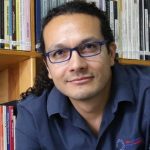 Expanding Frontiers: Possibilities for Psychedelic-Assisted Existential Therapy. More and more patients come to their therapist’s office to share that they are about to take some psychedelic substance, or that they have recently had an experience with a psychedelic (Magic Mushrooms, Ayahuasca, LSD, MDMA, Ketamine, etc.). In some cases, they have terrifying or difficult-to-integrate experiences that leave them with panic attacks; in others, they have wonderful experiences, which many classify among the 3 most impactful, transformative, and wonderful experiences of their lives. Most of them want to talk at length about their experience, make sense of it, or go deeper into the emotions, visions, or messages they feel they have received. In this dialogue, we will reflect on the impact of psychedelics on the therapeutic process, and we will open the window towards the possibility of psychedelic-assisted existential therapy. A possibility perhaps not far away, since both models share an interest in not imposing models of life on the other, and they are deeply respectful of the mystery of existence.” Dr. Yaqui Andrés Martinez.
Expanding Frontiers: Possibilities for Psychedelic-Assisted Existential Therapy. More and more patients come to their therapist’s office to share that they are about to take some psychedelic substance, or that they have recently had an experience with a psychedelic (Magic Mushrooms, Ayahuasca, LSD, MDMA, Ketamine, etc.). In some cases, they have terrifying or difficult-to-integrate experiences that leave them with panic attacks; in others, they have wonderful experiences, which many classify among the 3 most impactful, transformative, and wonderful experiences of their lives. Most of them want to talk at length about their experience, make sense of it, or go deeper into the emotions, visions, or messages they feel they have received. In this dialogue, we will reflect on the impact of psychedelics on the therapeutic process, and we will open the window towards the possibility of psychedelic-assisted existential therapy. A possibility perhaps not far away, since both models share an interest in not imposing models of life on the other, and they are deeply respectful of the mystery of existence.” Dr. Yaqui Andrés Martinez.
Dr. Yaqui A. Martínez-Robles is a psychologist with Masters, PhD and PsyD in Psychotherapy. He has training in Gestalt Therapy; Music Therapy; Transpersonal Psychology and Holotropic Breathwork (with the Grof Transpersonal Training Association); Narrative and postmodern therapies and Social Constructionism; and in Psychedelic-Assisted Therapy (with the Integrative Psychiatry Institute and MAPS-Multidisciplinary Association for Psychedelic Studies). He is the author of four books, and co-author of another two, focused on the existential perspective. He has participated with chapters in several books and with articles in several journals. Yaqui is the founder of the Circle of Studies in Existential Therapy, in Mexico City and in Medellin, Colombia,. He teaches existential-phenomenological psychology and therapy in Mexico and different countries of South America. He is the current president of the Latin American Association of Existential Psychotherapy (ALPE). He works in private practice as an existential-phenomenological therapist and coach, in modalities one-on-one, couples and groups.
www.yaquiandresmartinez.com
Recommended readings for “Psychedelics”:
Letheby Ch. (2021). Philosophy of Psychedelics. OUP Oxford
Fadiman J. (2022). Psychedelics Explorer Guide. Inner Traditions Audio.
Read T. & Papaspyrou M. (2022). Psychedelics and Psychotherapy: The Healing Potential of Expanded States. Inner Traditions Audio
ANXIETY
between Prof. Kirk Schneider
and Prof. Ernesto Spinelli
20 July 2024
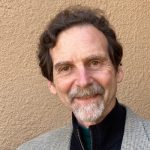 “Drawing especially from my 2023 book Life-Enhancing Anxiety: Key to a Sane World, I will focus on a phenomenological reflection on my own anxiety, stemming from an early trauma. I distinguish between my initial anxiety following an early trauma that I would call “life-denying” anxiety and the later form of that anxiety–following a childhood psychoanalysis–that I would term “life-enhancing” anxiety. I define life-enhancing anxiety as the capacity to live with and make the best of the depth and mystery of existence. Life-denying anxiety emphasizes paralysis and dread whereas life-enhancing anxiety acknowledges such acute discomforts but also emphasizes the edges of wonder and discovery in the mix; an invigorating brew. In short, life-enhancing anxiety can foster a sense of “awe”–or the humility and wonder, sense of adventure–toward living. I will elaborate the nature and development of these forms of anxiety as they evolved into my graduate school years and young adulthood. In the process, I will illustrate how these evolving anxieties inspired my interest in existential philosophy, psychology, and sociology.” Dr. Kirk Schneider.
“Drawing especially from my 2023 book Life-Enhancing Anxiety: Key to a Sane World, I will focus on a phenomenological reflection on my own anxiety, stemming from an early trauma. I distinguish between my initial anxiety following an early trauma that I would call “life-denying” anxiety and the later form of that anxiety–following a childhood psychoanalysis–that I would term “life-enhancing” anxiety. I define life-enhancing anxiety as the capacity to live with and make the best of the depth and mystery of existence. Life-denying anxiety emphasizes paralysis and dread whereas life-enhancing anxiety acknowledges such acute discomforts but also emphasizes the edges of wonder and discovery in the mix; an invigorating brew. In short, life-enhancing anxiety can foster a sense of “awe”–or the humility and wonder, sense of adventure–toward living. I will elaborate the nature and development of these forms of anxiety as they evolved into my graduate school years and young adulthood. In the process, I will illustrate how these evolving anxieties inspired my interest in existential philosophy, psychology, and sociology.” Dr. Kirk Schneider.
Kirk J. Schneider, Ph.D. is a leading spokesperson for contemporary existential-humanistic and existential-integrative psychology. Dr Schneider was a 2022 Candidate for President of the American Psychological Association (APA), a co-founder and current president of the Existential-Humanistic Institute (an award-winning psychotherapy training center), and a two-term Member of the Council of Representatives of the APA. He is also past president (2015-2016) of the Society for Humanistic Psychology (Division 32) of the APA, recent past editor of the Journal of Humanistic Psychology (2005-2012), a founder and frequent presenter/facilitator of the bridge-building dialogue approach the Experiential Democracy Dialogue and a trained moderator for the conflict mediation group Braver Angels. Dr Schneider is also an adjunct faculty member at Saybrook University and Teachers College, Columbia University and an Honorary Member of the Society for Existential Analysis of the UK and the East European Association for Existential Therapy. He received the Rollo May Award for “outstanding and independent contributions” to the field of humanistic psychology from the Society for Humanistic Psychology, APA and is a Fellow of seven Divisions of the APA (5, 9, 32, 42, 12, 29, and 24). His work on existential-integrative psychotherapy has been featured in a special issue of the Journal of Psychotherapy Integration (March 2016), as well as The Wiley World Handbook of Existential Therapy and the APA’s forthcoming Handbook of Psychotherapy. Dr Schneider has published over 200 articles, interviews and chapters and has authored or edited 14 books including The Paradoxical Self, Horror and the Holy, Rediscovery of Awe, Awakening to Awe, The Spirituality of Awe, The Polarized Mind, The Handbook of Humanistic Psychology, Existential-Humanistic therapy, Existential-Integrative Psychotherapy, The Wiley World Handbook of Existential Therapy, The Depolarizing of America: A Guidebook for Social Healing and his latest volume (February, 2023) Life-Enhancing Anxiety: Key to a Sane World. Dr. Schneider’s work has been featured in Scientific American, the New York Times, USA Today, The Guardian, Vanity Fair, Forbes Health, Psychology Today, BBC World News and many other health and psychology outlets. For more information on Dr. Schneider’s work visit https://kirkjschneider.com.
Recommended readings for “Anxiety”:
Schneider, Kirk J. (2023). Life-Enhancing Anxiety: Key to a Sane World. University Professors Press.
Schneider, Kirk J. (2013). The Polarized Mind: Why It’s Killing Us and What We Can Do About It. University Professors Press.
Schneider, Kirk J. (2008/2015). Existential-Integrative Psychotherapy: Guideposts to the Core of Practice. Routledge. (Paperback version 2015)
INTENTIONALITY
between Dr. Betty Cannon
and Prof. Ernesto Spinelli
26 October 2024
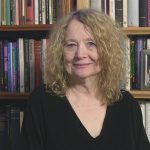
“According to Simone de Beauvoir, Sartre’s first response to encountering Husserl’s phenomenology in a café in Paris in 1933 was to turn pale with emotion. What so excited Sartre about Husserl, he tells us, was his concept of ‘intentionality’. On the surface, this concept may seem obvious, perhaps even a little trite: All consciousness is consciousness of something – perceived, remembered, or imagined. But it is not trite, according to Sartre, who immediately saw its implications for overturning all previous academic philosophy and psychology. No longer is the human ‘psyche’ or ‘mind’ a box filled with representations of objects, states, and qualities – or the human person a mere product of the laws of cause and effect. Consciousness is instead a direct encounter with the world and other people, and the human subject is an agent in a particular context or situation. As Sartre puts it, ‘Husserl has restored to things their horror and their charm. He has restored to us the world of artists and prophets: frightening, hostile, dangerous and with its havens of mercy and love.’ He has restored to us the vividness of lived experience. This is the object of study in existential-phenomenological research. My research project, which I will discuss with Ernesto next year, is a series of 18 demonstration video sessions with each of 13 student volunteers using an approach to therapy that I have been developing and teaching over the past 40 years. My aim is to explore the intentional structures of what we are doing together as they unfold over time. Existential phenomenology is both the method of inquiry in the sessions and the method that I am using to look at the transcripts and videos. This should allow me to explore what I actually do (as opposed to what I think or wish or fear I am doing) in sessions. I will use this material for a book I am currently writing: In the Spirit of Play: Applied Existential Psychotherapy.” Dr. Betty Cannon.
Betty Cannon, PhD, is a licensed psychologist who has taught and practiced in Boulder, Colorado, for over 40 years. She is Professor Emerita of the Colorado School of Mines and president and founder of the Boulder Psychotherapy Institute, which has trained mental health professionals in Applied Existential Psychotherapy since 1989. In addition to existential philosophy, especially the philosophy of Sartre, AEP has roots in Gestalt therapy, classical and contemporary psychoanalysis, humanistic psychology (especially the person-centered therapy of Carl Rogers), and body-oriented psychotherapy. Betty is a member of the editorial boards of the Journal for the Society of Existential Analysis and Sartre Studies International. She is the author of Sartre and Psychoanalysis and numerous articles and chapters on existential therapy. Her mentor was Hazel E. Barnes, who translated Sartre into English and who was the world’s foremost Sartre scholar until her death in 2008. Betty is her literary executor, and her book on Sartre is dedicated to Hazel.
Recommended readings for “Intentionality”:
Sartre, J-P. (1935, 1947) “Intentionality: A Fundamental Idea of Husserl’s Phenomenology” (trans by Joseph Fell). French version is in Situations I (1947), Paris: Gallimard. This essay is also included in We Have Only This Life to Live: The Selected Essays of Jean-Paul Sartre, 1939-75, ed. Van den Hoven, A. & Aronson, R. (2013). New York: New York Review of Books Classics.
Spinelli, E. (2005). The Interpreted World: An Introduction to Phenomenological Psychology 2nd edition. London: Sage Publications.
Moran, Dermot and Timothy Mooney, eds. (2002). The Phenomenology Reader. London and New York: Routledge. (Includes not only Husserl and classical phenomenology but Sartre’s ‘Intentionality’ essay and other writings by existential phenomenologists such as Heidegger, Beauvoir and Merleau-Ponty)
VULNERABILITY
between Prof. Simon du Plock
and Prof. Ernesto Spinelli
23 November 2024
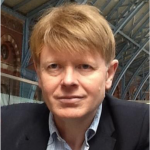 “I will present a research study of my own to illustrate how a personal journey, and the method of investigation used, can intertwine and inform each other in creative ways. I will suggest that existential-phenomenological therapists are ideally positioned to generate forms of research grounded in such first-person experience and naïve inquiry. We will see that the early stages of this inquiry mirror the process of reflection and analysis to be found in the practice of existential therapy. The notion of the neutral, objective researcher is as problematic as the notion of the neutral, objective therapist. In both cases, the illumination they can provide depends upon who they are – or perhaps where they are – in relation to the client or the research topic. But if we reject the possibility of being a neutral investigator, we need to describe clearly our own research trajectory in relation to the experience under investigation. Ruth Behar, writing about ‘humanistic anthropology’, states that researchers who locate themselves within their own projects forfeit the defensive position of ‘scientific observer’:
“I will present a research study of my own to illustrate how a personal journey, and the method of investigation used, can intertwine and inform each other in creative ways. I will suggest that existential-phenomenological therapists are ideally positioned to generate forms of research grounded in such first-person experience and naïve inquiry. We will see that the early stages of this inquiry mirror the process of reflection and analysis to be found in the practice of existential therapy. The notion of the neutral, objective researcher is as problematic as the notion of the neutral, objective therapist. In both cases, the illumination they can provide depends upon who they are – or perhaps where they are – in relation to the client or the research topic. But if we reject the possibility of being a neutral investigator, we need to describe clearly our own research trajectory in relation to the experience under investigation. Ruth Behar, writing about ‘humanistic anthropology’, states that researchers who locate themselves within their own projects forfeit the defensive position of ‘scientific observer’:
“Writing vulnerability takes as much skill, nuance, and willingness to follow through on all the ramifications of a complicated idea as does writing invulnerably and distantly.”* My inquiry offers an example of researcher vulnerability and helps us reflect on the extent to which any researcher’s personal journey can be the catalyst for rigorous systematic inquiry.” Prof .Simon du Plock.
*Behar, R. (1996). The Vulnerable Observer: Anthropology That Breaks Your Heart. Boston: Beacon Press
Prof. Simon du Plock is Senior Research Fellow at the Metanoia Institute, London. He was Head of the Faculty of Post-Qualification and Professional Doctorates at the Institute from 2007 to 2020, in which role he directed counselling psychology and psychotherapy research doctorates jointly with Middlesex University. He is a Fellow of the Royal Society for Medicine, a Foundation Member with Senior Practitioner Status of the BPS Register of Psychologists Specialising in Psychotherapy, and a Member of the BPS Register of Applied Psychology Practice Supervisors. He has been a BPS Chartered Counselling Psychologist and UKCP Registered Psychotherapist since 1994.
He has authored nearly one hundred journal papers and book chapters on existential therapy, and he has co-edited Existential Analysis, the Journal of the British Society for Existential Analysis, since 1993. He was an editor of the 2019 Wiley World Handbook of Existential Therapy. He has lectured and trained internationally, and in 2006 he was made an Honorary Member of the East European Association for Existential Therapy in recognition of his contribution to cooperation between West and East Europe in the development of existential psychotherapy.
His clinical and research interests include phenomenological research methodology, clinical and research supervision, existential pedagogy, and working with issues of dependency.
Recommended readings for “Vulnerability”:
Du Plock, S. (2020) The Vulnerable Researcher: Harnessing Reflexivity for Practice-Based Qualitative Inquiry, in Bager-Charleson, S. (ed) Reflective Practice in Counselling and Psychotherapy. London: Learning Matters, pp. 132-144.
Du Plock, S. (2013) Bibliotherapy and Beyond: Research as a Catalyst for Change in Therapeutic Practice, in Goss, S. P. & Stevens, C. (eds) Making Research Matter. Researching for change in the theory and practice of counselling and psychotherapy. London: Routledge, pp. 85-105.
Du Plock, S. (2008) Living ME: Some Reflections on the Experience of Being Diagnosed With a Chronic ‘Psycho-Somatic’ Illness. Existential Analysis, 19(1), pp. 46-57.
ENACTING
between Bárbara Godoy
and Prof. Ernesto Spinelli
14 December 2024

“I will describe examples from my work with groups since 1997 that illustrate a method to embody existential insight that borrows from the performing arts and it is influenced by Gestalt, Psychodrama and other theatrical/physical therapeutic approaches. Enacting is an opportunity to make a statement that becomes an existential action. It can gather the possibilities-of-Being articulating choices and intentions in the flow, and can offer a testimony at the point of convergence of the rational and the life impulse. Through metaphor and embodiment we drop sedimentations in the personality and we interrupt the continuity and the assumptions of the personal narrative of the everyday. This approach bypasses the structure of formal language to tap into metaphors that can describe and communicate to oneself and in a social context the complexity of the existential experience. Theatre enables the flesh of tragedy and comedy to come into presence and allows the individual to rehearse new possibilities of being with others.” Bárbara Godoy.
Bárbara Godoy M.A., Adv. Dip. Exi. Psy, UKCP accredited Psychotherapist and Supervisor, SEA – Director of Therapy Harley Street. Bárbara’s academic experience in London since 2008 includes lecturing and researching on the theory and practice of Phenomenological Existential Therapy on Doctorate, MA and professional courses at the School of Psychotherapy and Counselling Psychology, Regent’s University and the New School of Psychotherapy and Counselling directed by Emmy van Deurzen. Bárbara has facilitated therapeutic Group Work internationally since 1997. The question about the meaning of Being-Woman was the topic of her thesis completed in 2005 and evolved into two main Women’s Groups: “Nine muses” and “Four Seasons” which she leads in addition to her individual private practice. Currently, as the clinical director of THS, Bárbara leads a team of over 20 professional practitioners in the area of Psychological services and Wellbeing consultancy. Bárbara is also the founder-director of THS’s Personal Development and CPD Programmes.
Recommended readings for “Enacting”:
Reich, Wilhelm (1980). Character Analysis. Published by Farrar Strauss and Giroux books.
Lowen, Alexander (1994). Bioenergetics: The Revolutionary Therapy that Uses the Language of the Body to Heals the Problems of the Mind. Published by Peguin / Arkana
Nietzsche, Friederich (1994). The Birth of Tragedy: Out of the Spirit of Music. Published by Penguin.
